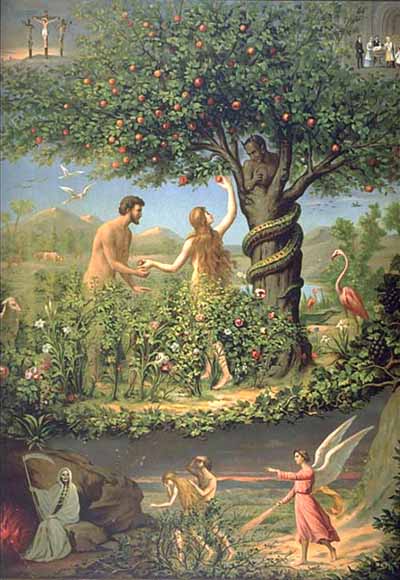 "Original sin and the Fall: definitions and a proposal" T. A. Noble
"Original sin and the Fall: definitions and a proposal" T. A. NobleAs Noble rightly states: 'The doctrine of original sin and the doctrine of the Fall are inextricably linked in historic Christianity'. He identifies and briefly discusses ten facets of original sin:
1. Universal sin
2. Fallenness
3. The original act of sin
4. Original guilt
5. Original sin as a vitium or disease
6. Heredity sinfulness
7. An inner disposition, tendency ot 'bent toward sinning'
8. The propagation of sin through sexual desire
9. The flesh
10. Corporate sin
It was good to have these different aspects spelled out; though, of course not all of them - particularly point 8 - are biblical facets. But these concepts have been associated with original sin throughout the ages. As Noble points out this analysis can help towards constructing a more 'concise and coherent' doctrine of original sin.
He then looks at the Fall examining three aspects: alienation, death and sin. He makes an excellent point, that is often forgotten, that we need to interpret the Fall in the light of the New Testament.
The Fall for Noble is an event, a 'spiritual and ethical' event. It can't be seen as an explanation for evil, as evil is 'inexplicable'. The Fall is not a theodicy, it's not part of apologetics but of dogmatics. It is also an event in time. He unequivocally states that: 'we must maintain a temporal Fall even though the language is prophetic and full of imagery' (p. 115). Though he thinks we may not be able to date it since it 'may not be open to our historical inquiries' (p. 115). Again, 'Quite why Noble thinks this not not quite clear. It may be that he wants to maintain a complementarity between science and revelation. He draws paralles between the parousia and the Fall, both are known through revelation and neither can be known by 'natural human insight, research and investigation'. He almost gets into a sacred/ secular dualism here. He summarises his perspective:
In short, from the viewpoint of natural science and the historical-critical method, both of which methodologically project present conditions into the past and future, the world must look as if it has been fallen and always will be (p. 119)
He then tursn to death. As he rightly states 'death came through sin' (Rom 5:12) 'seems to fly in the face of scientific investigation..' (p. 120) He warns again of taking the doctrines of Christian faith 'as if they were scientific theories'.
He comes back to consider sin. He sees it as important that we discern two aspects to sin: the acts of sin and the condition of sinfulness.
He concludes by making an excellent point: Darwin 'has created an apologetic problem for the Church, but Christian theology must resist the temptation to be driven by apologetics' (p. 129). Which begs the question: how much is this book being driven by apologetics in the light of Darwin?

No comments:
Post a Comment